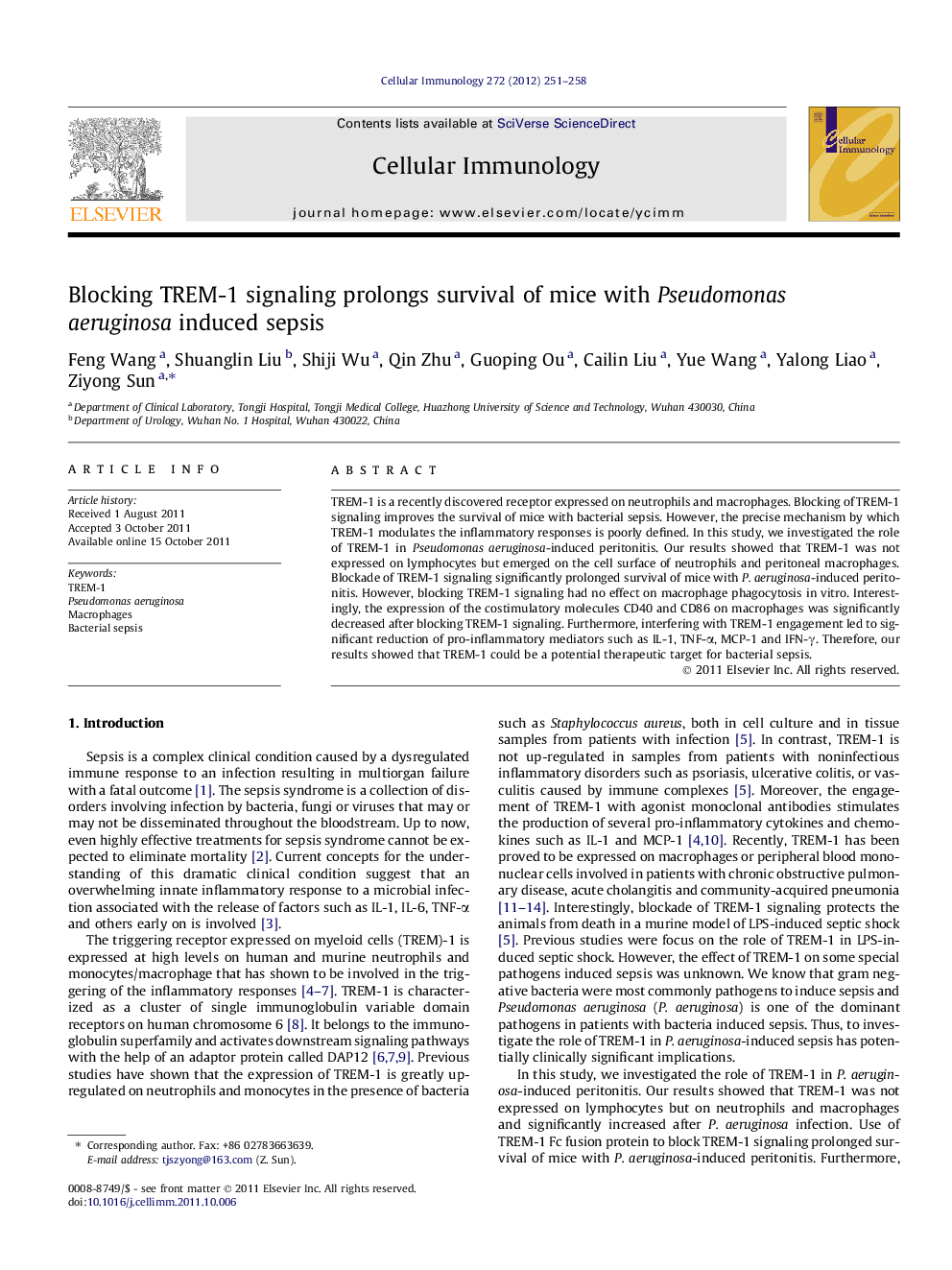| Article ID | Journal | Published Year | Pages | File Type |
|---|---|---|---|---|
| 2167395 | Cellular Immunology | 2012 | 8 Pages |
TREM-1 is a recently discovered receptor expressed on neutrophils and macrophages. Blocking of TREM-1 signaling improves the survival of mice with bacterial sepsis. However, the precise mechanism by which TREM-1 modulates the inflammatory responses is poorly defined. In this study, we investigated the role of TREM-1 in Pseudomonas aeruginosa-induced peritonitis. Our results showed that TREM-1 was not expressed on lymphocytes but emerged on the cell surface of neutrophils and peritoneal macrophages. Blockade of TREM-1 signaling significantly prolonged survival of mice with P. aeruginosa-induced peritonitis. However, blocking TREM-1 signaling had no effect on macrophage phagocytosis in vitro. Interestingly, the expression of the costimulatory molecules CD40 and CD86 on macrophages was significantly decreased after blocking TREM-1 signaling. Furthermore, interfering with TREM-1 engagement led to significant reduction of pro-inflammatory mediators such as IL-1, TNF-α, MCP-1 and IFN-γ. Therefore, our results showed that TREM-1 could be a potential therapeutic target for bacterial sepsis.
► TREM-1 is expressed on neutrophils and macrophages but not on lymphocytes. ► Blockade of TREM-1 signaling significantly prolongs survival of mice with Pseudomonas aeruginosa-induced peritonitis. ► Blocking TREM-1 signaling has no effect on macrophage phagocytosis. ► Blocking TREM-1 signaling reduce pro-inflammatory mediators such as IL-1, TNF-α and IFN-γ. ► Blocking TREM-1 signaling leads to decreased expression of the costimulatory molecules on macrophages.
